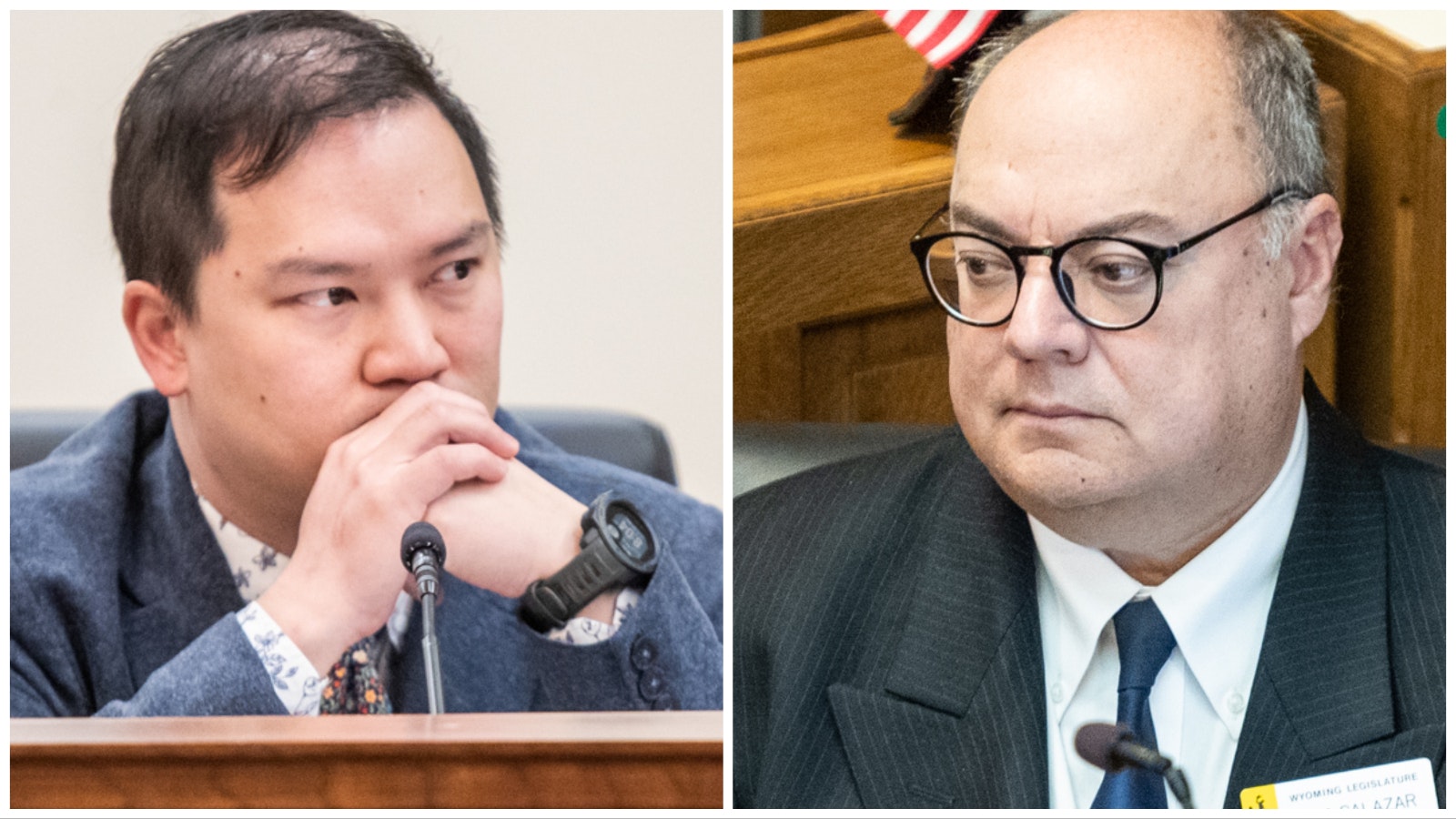By Clair McFarland, General Assignment Reporter
Clair@CowboyStateDaily.com
Two different abortion bans are headed to Wyoming Gov. Mark Gordon’s desk after the state House of Representatives and Senate on Thursday approved late legislative changes to them.
The Senate approved Senate File 109, which bans chemical abortion drugs, with a concurrence vote of 26-4 with one senator absent. Concurrence votes determine whether the legislative chamber in which a bill originated approves of the changes made to it by the second chamber. If there’s no concurrence, leadership can appoint a bicameral committee to find a compromise or can let the bill die.
The state House this week changed SF 109 significantly, stripping out specific abortion drugs and inserting instead a blanket ban on prescribing, distributing, selling and using any chemical abortion drugs for the purpose of causing an abortion.
There are abortion chemicals throughout Wyoming pharmacies and hospitals that have other medical purposes, like inducing labor and treating postnatal hemorrhages.
SF 109’s sponsor Sen. Tim Salazar, R-Riverton, characterized the change as a compromise.
“We don’t always get everything we want, but this is something the (House) believed would protect those in the medical community, to make sure those chemicals are in our pharmacies,” said Salazar.
Doctors had pleaded with legislators not to let SF 109 scare pharmacists from stocking useful drugs.
A Human Right
Meanwhile the House approved the Senate’s changes to House Bill 152, the “Life Is A Human Right Act” with a resounding 49-10 vote, with three delegates absent.
Republicans and Democrats alike praised the Senate’s changes.
“I’m proud to have my name on this bill,” said Rep. Art Washut, R-Casper, who urged his colleagues to approve the concurrence.
Rep. Mike Yin, D-Jackson, said he liked many changes to the bill, including additional carveouts for women like an exemption for abortions performed to treat cancers or diseases that “may” be fatal or harmful to the unborn baby.
But Yin said he still could not vote in favor of concurrence because he believes that abortion is health care, and Wyoming’s Constitution protects people’s health care autonomy.
State courts have not yet decided whether abortion is considered health care under the Constitution.
Re-Do
The act is a more specifically-worded rewrite of last year’s “trigger ban” outlawing abortions in the wake of the U.S. Supreme Court’s overturn of Roe vs. Wade.
The trigger ban outlaws most abortions from conception onward, except in cases of rape, incest, or severe health or death risks, but it’s not currently being enforced. Plaintiffs sued Wyoming over the trigger ban, and Teton County District Court blocked the law hours after it became effective.
HB 152 was crafted as a retort to Teton County District Court Judge Melissa Owens’ concerns. Owens said the trigger ban could leave pregnant women and doctors in moments of pregnancy health crises confused about whether the abortion could be considered criminal.
Owens also paused the law because she said abortion may be protected right under the state Constitution’s health care autonomy clause.
Reasonable Medical Judgment
HB 152 carves out more leeway for doctors by letting them operate in a space of “reasonable medical judgment” when performing life-saving abortions.
The bill also specifies that pregnant women should not be charged criminally under the act; only abortionists would be charged.
Rep. Clark Stith, R-Rock Springs, said even with the bill’s passage he’s still concerned pregnant women who procure abortions could be charged criminally because of the way Wyoming law is written elsewhere.
Rape And Incest, Again
Another change the Senate made to HB 152 was to remove the House’s provision which said the law should not become effective unless and until the trigger ban is declared unconstitutional in the Wyoming Supreme Court.
The Senate also added rape and incest exemptions to HB 152, which the sponsors at first argued against but later accepted as a necessary compromise to get the law through both chambers.
House Majority Floor Leader Rep. Chip Neiman, R-Hulett, argued through the bill’s early days that rape and incest exemptions make the bill discriminatory and prevent the state attorney general from defending it with the state Constitution’s equal protection clause.
The trigger ban also contains exemptions for rape and incest. The state is not using the equal protection clause to defend the trigger ban.
Another provision the Senate removed from HB 152 would have commanded courts to let individual legislators help defend the law in court as intervenors. Critics saw this as a separation of powers violation.





